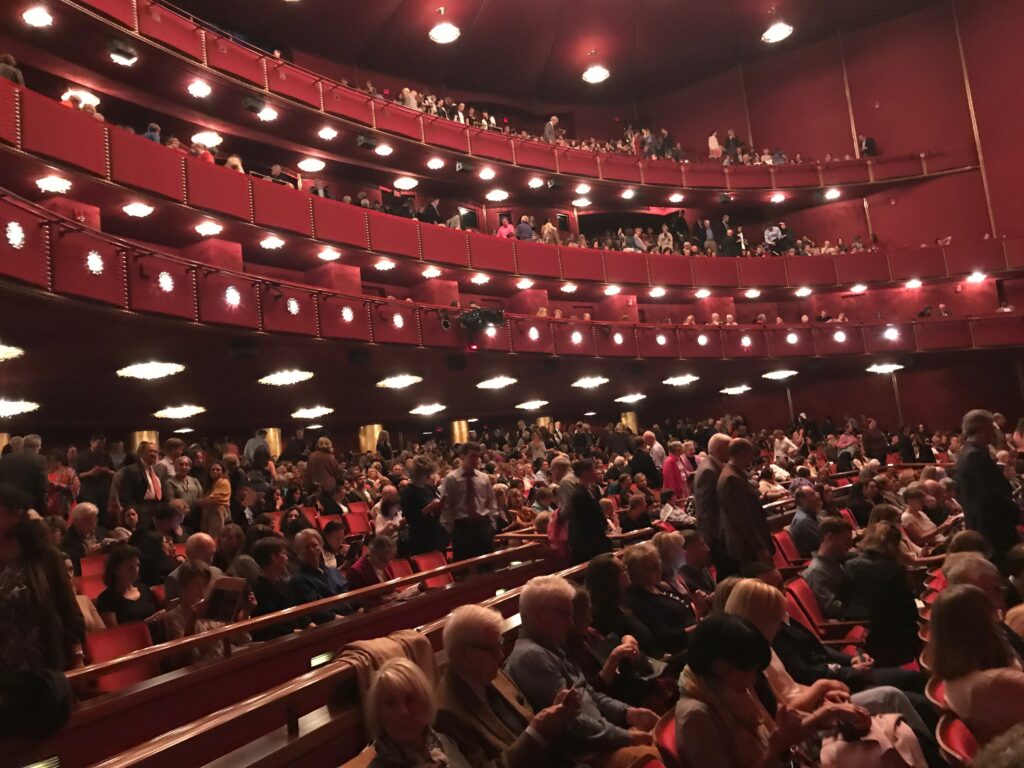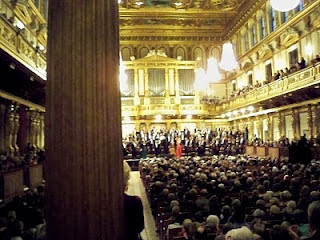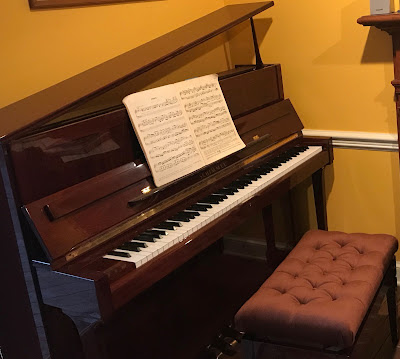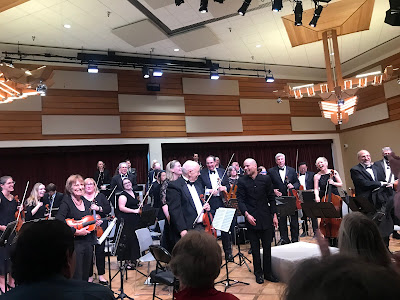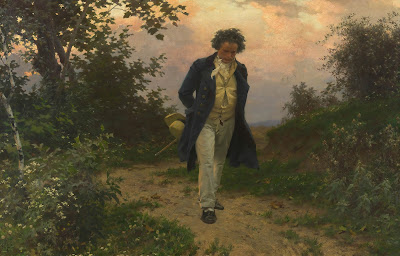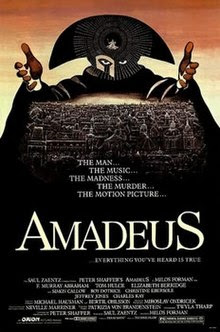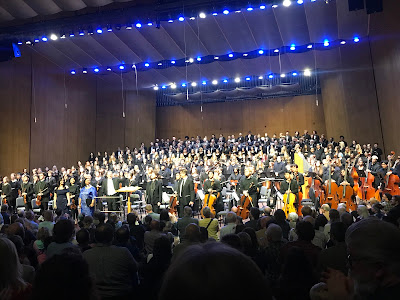Nine Lessons and Carols
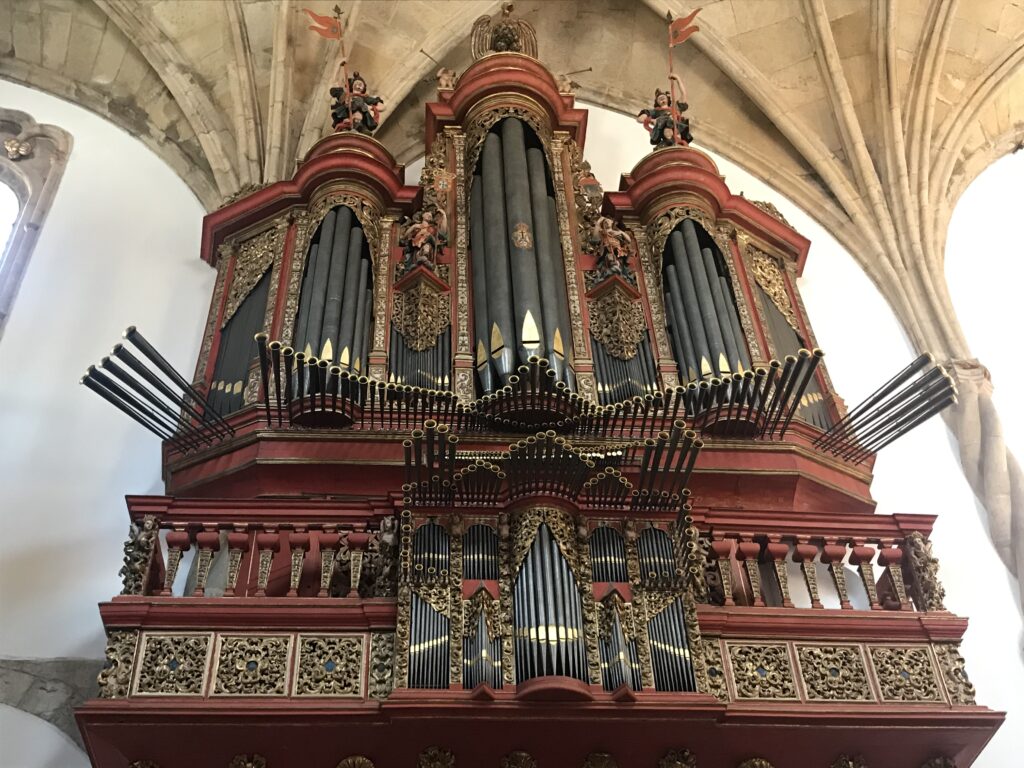
The Festival of Nine Lessons and Carols I know is the one that takes place in King’s College Cambridge on Christmas Eve. It’s the one that begins with these words “Once in Royal David’s City,” often sung in the dulcet tones of a boy soprano.
It’s also the one that the famous Groton School of Groton, Massachusetts, holds or used to hold, which we once foolishly attended with newborn Suzanne. She didn’t cry … much. But I spent most of the service worrying that she would, especially during the agonizingly long minutes when the solemn procession blocked our exit.
The Festival of Lessons and Carols last night was a different matter. It was beautiful and earnest, not a flame in the darkness but a well-lit performance featuring the choir and its new director, an organist extraordinaire. The reading and songs weren’t the exact ones I was expecting but they checked all the boxes.
Afterward we went up and talked with the director, congratulated him on the success of the event and asked some questions about the organ. Turns out, it’s a hybrid instrument, part digital, part real pipes. I had no idea such a combination exists and am doubly amazed now at the sound that comes out of it.
To hear “O Come, O Come Emmanuel” on that instrument is to hear the carol in all its ancient and aching wonderment. A suiting accompaniment to the words of Isaiah: “Every valley shall be exalted, and every mountain and hill shall be made low, and the crooked shall be made straight and the rough places plain.”
